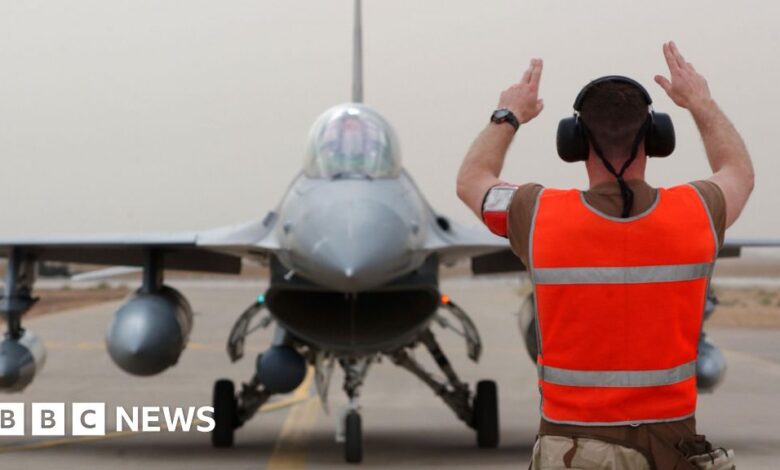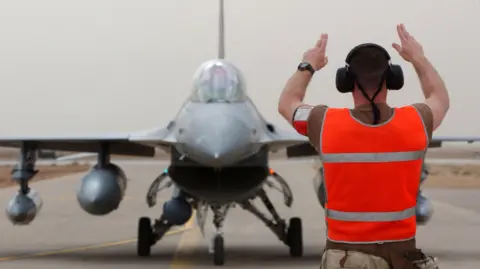US deploys jets and warships as Iran threatens Israel

 beautiful pictures
beautiful picturesThe Pentagon said the United States will deploy additional warships and fighter jets to the Middle East to help protect Israel from possible attacks by Iran and its proxy forces.
Tensions remain high in the region following the assassination of Hamas leader Ismail Haniyeh in Iran and a key commander of the Hezbollah militant group in Lebanon.
The Pentagon said missile defense forces had been placed on a heightened state of readiness, adding that its commitment to defending Israel was “ironclad”.
Iran’s Supreme Leader Ayatollah Khamenei has vowed to “severely punish” Israel for the assassination of Haniyeh.
The leader of Hamas was killed in Tehran on Wednesday. Iran and its proxy in Gaza blamed Israel for the attack, but Israel has yet to comment.
Haniyeh, 62, is widely seen as Hamas’s all-powerful leader and played a key role in negotiations to reach a ceasefire in the Gaza war.
His death came just hours after Israel announced it had killed Fuad Shukr, a senior military commander of Iran’s proxy force in Lebanon, Hezbollah.
A Pentagon statement said the new deployment would “improve the ability to protect US forces… enhance defense support to Israel and… ensure the United States is ready to respond to a variety of contingencies”.
According to information from the US side, this deployment will include additional cruisers and destroyers with ballistic missile defense capabilities.
High alert
On the Tel Aviv beach, the atmosphere seems relaxed with tanned bodies lounging under sun umbrellas.
But few doubt that the Middle East is on the brink of all-out war.
Israel is on high alert.
Several international airlines have suspended flights to the country.
Meanwhile, Israeli ministers were sent home this weekend with satellite phones as a precaution in case communications infrastructure is attacked.
Earlier on Saturday, Israeli forces killed a Hamas member in the West Bank.
Dozens of Palestinians are reported to have been killed in air strikes on Gaza in the past 24 hours – a reminder that Israel’s war in the region continues even as diplomats struggle to prevent the fighting from escalating.
The US military had already stepped up its deployment earlier, on April 13, when Iran launched an attack on Israel with drones and missiles. Israel and its allies shot down nearly all of the roughly 300 drones and missiles fired.
Israel has not commented directly on the airstrike that killed Haniyeh. But Prime Minister Benjamin Netanyahu said his country had dealt “crushing blows” to its enemies in recent days, including the killing of Shukr in Beirut.
He warned Israelis that “challenging days are ahead… we have heard threats from all sides. We are prepared for all eventualities”.
Earlier, Pentagon spokeswoman Sabrina Singh said the United States did not believe an escalation was inevitable.
“I think we are being very direct in conveying the message that we certainly do not want to see tensions escalate and we believe there is a way out here and that is a ceasefire,” Singh said.
Mr Netanyahu said on Friday that an Israeli delegation would travel to Cairo in the coming days for talks aimed at reaching a ceasefire in Gaza and a deal to release hostages.
Hamas sparked the war with an October 7 attack on Israel that killed 1,200 people. Israel responded with an ongoing military campaign in Gaza that has killed nearly 40,000 people, according to the Hamas-run Health Ministry.
The circumstances surrounding Haniyeh’s death remain unclear.
On Saturday, Daily Telegraph reported that Iranian agents hired by Israel’s Mossad intelligence agency planted a bomb in a building where Haniyeh was staying.
The newspaper reported that two agents planted bombs in three rooms of the Islamic Revolutionary Guard Corps guesthouse in Tehran, and that the bombs were detonated from abroad.
An earlier report by New York Times said the bombs were smuggled into the building two months ago.
The BBC has not been able to verify these claims.





